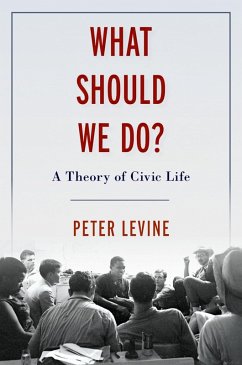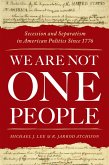A broad theory of civic life that asks the question "What should we do?" and shows how to ask it well for civic engagement. People who want to improve the world must ask the fundamental civic question: "What should we do?" Although the specific issues and challenges people face are enormously diverse, they often encounter problems of collective action (how to get many individuals to act in concert), of discourse (how to talk and think productively about contentious matters), and of exclusion. To get things done, they must form or join and sustain functional groups, and through them, develop skills and virtues that help them to be effective and responsible civic actors. In What Should We Do?, Peter Levine, one of America's leading scholars and practitioners of civic engagement, identifies the general challenges that confront people who ask the citizens' question and explores solutions. Ultimately, his goal is to provide a unified theoretical foundation for effective civic engagement and citizen action. Levine draws from three rich traditions: research on collective action by Elinor Ostrom and her colleagues, work on deliberation and discourse by J?rgen Habermas, and the nonviolent social movements led by Gandhi and Martin Luther King, Jr. Using real-world examples, he develops a theory of citizen action that can effectively wrestle with these problems so that they don't destabilize movements. A broad theory of civic life, What Should We Do? turns from the question of what makes a society just to the question of how to relate to our fellow human beings in a context of injustice. And it offers pragmatic guidance for people who seek to improve the world.
Dieser Download kann aus rechtlichen Gründen nur mit Rechnungsadresse in A, B, BG, CY, CZ, D, DK, EW, E, FIN, F, GR, HR, H, IRL, I, LT, L, LR, M, NL, PL, P, R, S, SLO, SK ausgeliefert werden.









